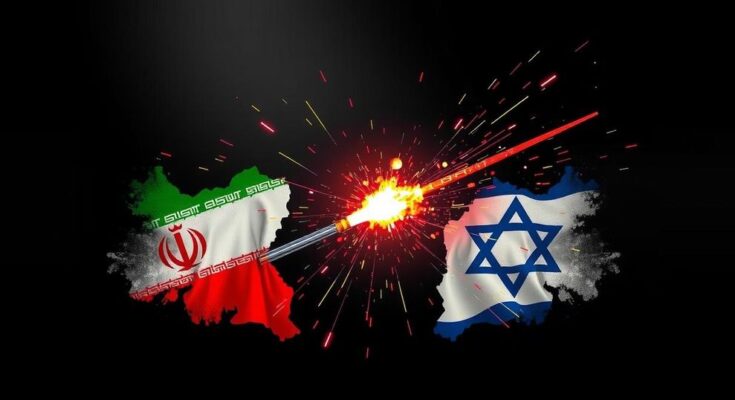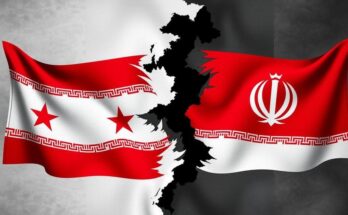Iran has issued a warning to Israel following missile attacks, as tensions rise due to Israel’s military offensive against Hezbollah. U.S. officials are attempting to mediate the situation to prevent further escalation. Casualties are mounting in both Lebanon and Gaza, leading to a worsening humanitarian crisis as conflict persists in the region.
Iran’s Revolutionary Guards Commander, Hossein Salami, issued a stern warning to Israel against any retaliatory actions following a missile attack attributed to Iran. As Israel escalates military operations against Hezbollah in Lebanon, the tension in the region has reached a boiling point, leading to fears of a broader conflict. Salami emphasized that Iran possesses the capability to penetrate Israel’s defenses and promised a decisive response if aggression were to occur. Meanwhile, U.S. Defense Secretary Lloyd Austin engaged in discussions with Israeli Defense Minister Yoav Gallant, indicating an effort to mitigate potential escalation in the Middle East. Simultaneously, Iran’s Foreign Minister, Abbas Araqchi, is touring the region to engage with Arab leaders, including Egyptian President Abdel Fattah al-Sisi, who reiterated calls for de-escalation. Despite these diplomatic efforts, Israel remains steadfast in its military approach, conducting operations against both Hamas in Gaza and Hezbollah in Lebanon. Recent airstrikes have resulted in significant casualties, with reported deaths among Palestinians and Hezbollah fighters alike. In the latest developments, Israel has issued evacuation orders to residents in specific regions of southern Lebanon as their military operations continue, claiming to have inflicted considerable losses on Hezbollah while warning further incursions may occur. The ongoing conflict has elicited a humanitarian crisis, displacing millions and leading to a tragic death toll thus far this year.
The current tensions between Iran and Israel arise from a protracted conflict that has intensified due to numerous military confrontations and retaliatory strikes across the region. On October 1, Iran executed a missile attack against Israel, purportedly in response to previous Israeli airstrikes targeting Iranian-affiliated armed groups. This tit-for-tat offensive has exacerbated existing hostilities and drawn international attention due to the implications of a wider regional war, particularly through Israel’s increasing military engagements with its adversaries, Hezbollah and Hamas. The situation has attracted concern from global powers including the United States, which seeks to navigate a delicate diplomatic balance to avoid escalation while supporting its ally, Israel.
In summary, the ongoing military confrontations between Iran and Israel pose significant risks to regional stability. Iran has strongly warned Israel against aggression, asserting its capabilities to retaliate decisively. As military actions continue, including airstrikes in Lebanon and Gaza, the humanitarian situation remains dire, with thousands displaced and many casualties reported. Continued diplomatic dialogue appears crucial for de-escalating tensions; however, the entrenched military strategies of both sides complicate the possibility of a peaceful resolution in the immediate future.
Original Source: www.jpost.com




